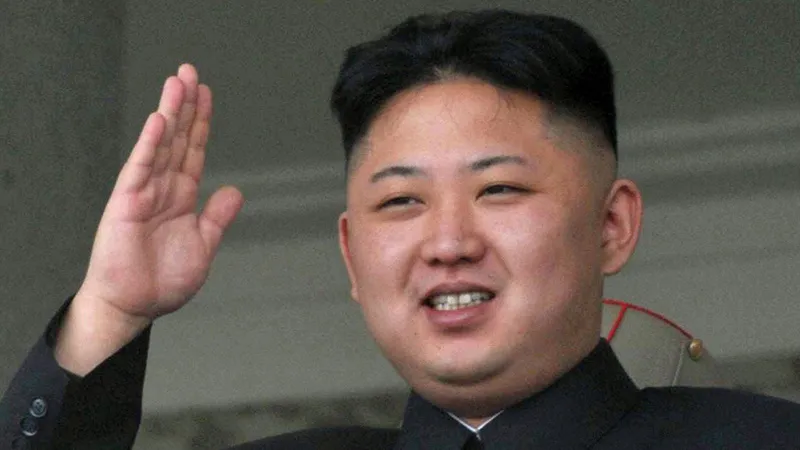-
CENTRES
Progammes & Centres
Location
Since February, North Korea has fired off more than 30 ballistic missiles, more than the number fired previously by the country, ever.

Last week, North Korea conducted its fifth underground nuclear test — and second this year — shrugging off threats of deeper sanctions from the United States and the United Nations in the process. The test demonstrated a "nuclear warhead that has been standardised to be able to be mounted on" its ballistic missiles, the North Korean regime proclaimed in a statement. The South Korean government also confirmed the test after recording "an unnatural" tremor originating from Punggye-ri, where the North has conducted four previous tests.
The latest test was the country’s largest to date, sparking worries that Pyongyang is making real progress in its efforts to build a functional nuclear warhead. Estimates of the explosive yield of the latest blast have varied. South Korea’s military said it was about 10 kilotonnes, enough to make it the North’s "strongest nuclear test ever." Other experts say initial indications suggest 20 kilotonnes or more.
The pace and tenor of North Korean ballistic missile and nuclear tests have undergone a significant shift this year. Since February, North Korea has fired off more than 30 ballistic missiles with a range of at least 200 km, more than the number fired previously by the country, ever. These more extensive tests should allow the North to convert its missile force from a strategic threat/showcase to an operational force that seriously jeopardises all of its neighbours, including China.
"Assessment by South Korean and US intelligence is that the North is always ready for an additional nuclear test," South Korean Defence Ministry spokesman Moon Sang-gyun suggested earlier this week.
Last week’s nuclear test have reinforced fears in Washington and across Asia that Pyongyang’s military advances could soon outpace the missile defence systems the United States and its regional allies have built up over the last decade. There is a growing sense that Washington and its Asian allies could be in danger of falling behind as North Korea builds longer range and increasingly reliable missiles that expand its potential reach and threaten to overwhelm expensive and untested missile-defence systems.
Following last week’s tests, US President Barack Obama pledged to unleash a new round of sanctions on Pyongyang, but decades of economic punishments have done nothing to stop the North so far, and it is highly unlikely that more sanctions will make much of a difference. Nuclear weapons today seem to be the sole survival strategy of the North Korean regime and so no amount of sanctions is likely to dent that calculus.
The North has also been angered by a US and South Korean plan to install an anti-missile defence system in the South and by the allies' massive annual joint military exercises, which are still taking place.
 An opera in Pyongyang | Courtesy: Flickr user stephen
An opera in Pyongyang | Courtesy: Flickr user stephenThe US has flown two supersonic B-1 Lancer strategic bombers over South Korea in a show of force, just days after North Korea carried out its fifth nuclear test. B-1 bombers are capable of carrying nuclear missiles and bombs that are able to destroy even underground bunkers. As has happened in the past, the international community has reacted with predictable outrage.
China said it was "firmly opposed" to the test, while Japan "protested adamantly" and the US president Barack Obama warned of "serious consequences."
South Korea has taken an unusually harsh tone. Seoul has a plan to annihilate the North Korean capital if it shows any signs of mounting a nuclear attack. There has been rising criticism within South Korea of the government as its attempts to isolate the North have failed to deter leader Kim Jong-un’s nuclear ambitions.
Though the US says it is considering its own sanctions, in addition to any imposed by the UN Security Council, Japan and South Korea, Pyongyang response has been to laugh it all off. It seems to have learnt from its earlier shenanigans that nothing of significance will happen.
After the fourth test in January, China agreed to impose tougher UN sanctions. Further and even tougher sanctions are still possible, like blocking the export of fuel oil to North Korea. But China’s bottom line is that it does not want the collapse of the regime in Pyongyang if that leads to a chaotic power vacuum, possibly filled by the US and its allies.
Beijing also remains worried about the prospect of a unified Korean peninsula which will bring Washington right to its doorsteps. As a result, the threat of further sanctions is hardly a deterrent to the regime of Kim Jong-un, as his military is thought to have a small standing stock of nuclear weapons, with some estimates placing the national inventory around 15-20 weapons.
Sanctions will not affect this stockpile, or the North’s ability to test. It has also been suggested that as Kim Jong-un continues to consolidate his power, South Korea and the United States should expect that provocations will continue to be a part of North Korea’s strategy.
Asia is passing through a turbulent phase with multiple crises brewing in different parts of the region.
At its foundation, these crises are about the changing global balance of power with China’s rise and its strident assertion of its interests and concerns about America’s ability to manage this power transition.
This commentary originally appeared in Mail Today.
The views expressed above belong to the author(s). ORF research and analyses now available on Telegram! Click here to access our curated content — blogs, longforms and interviews.

Professor Harsh V. Pant is Vice President – Studies and Foreign Policy at Observer Research Foundation, New Delhi. He is a Professor of International Relations ...
Read More +